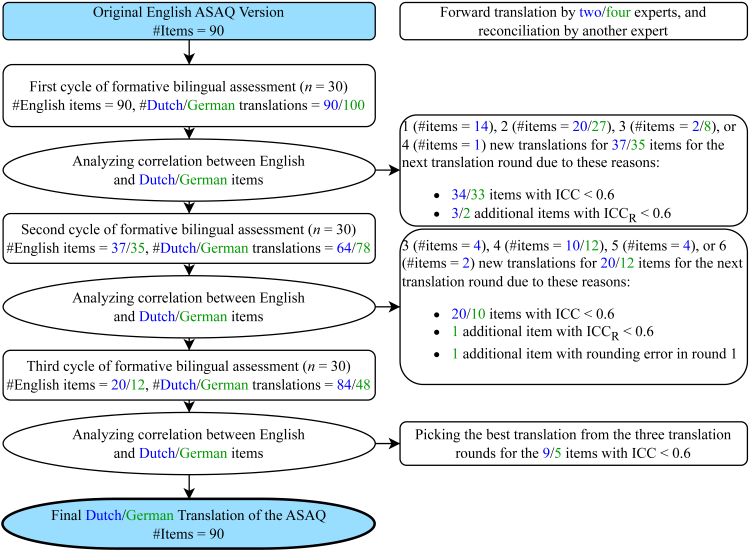German and Dutch Translations of the Artificial-Social-Agent Questionnaire Instrument for Evaluating Human-Agent Interactions

Enabling the widespread utilization of the Artificial-Social-Agent (ASA)Questionnaire, a research instrument to comprehensively assess diverse ASA qualities while ensuring comparability, necessitates translations beyond the original English source language questionnaire. We thus present Dutch and German translations of the long and short versions of the ASA Questionnaire and describe the translation challenges we encountered. Summative assessments with 240 English-Dutch and 240 English-German bilingual participants show, on average, excellent correlations (Dutch ICC M = 0.82,SD = 0.07, range [0.58, 0.93]; German ICC M = 0.81, SD = 0.09, range [0.58,0.94]) with the original long version on the construct and dimension level. Results for the short version show, on average, good correlations (Dutch ICC M = 0.65, SD = 0.12, range [0.39, 0.82]; German ICC M = 0.67, SD = 0.14, range [0.30,0.91]). We hope these validated translations allow the Dutch and German-speaking populations to evaluate ASAs in their own language.
@InProceedings{Boensch2024,
author = { Nele Albers, Andrea Bönsch, Jonathan Ehret, Boleslav
A. Khodakov, Willem-Paul Brinkman },
booktitle = {ACM International Conference on Intelligent Virtual
Agents (IVA ’24)},
title = { German and Dutch Translations of the
Artificial-Social-Agent Questionnaire Instrument for Evaluating Human-Agent
Interactions},
year = {2024},
organization = {ACM},
pages = {4},
doi = {10.1145/3652988.3673928},
}

